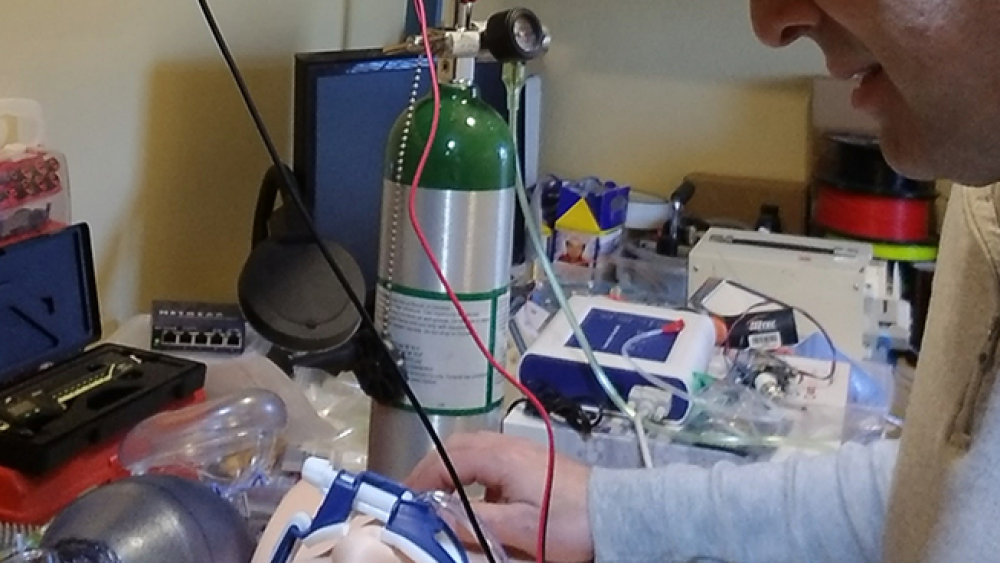By Laura French
WORCESTER, Mass. — A Massachusetts researcher who used to work as an EMT has spearheaded an effort to convert bag valve mask resuscitators into automated ventilators.
Gregory Fischer, professor of robotics engineering and mechanical engineering at Worcester Polytechnic Institute (WPI), hopes to come up with a design that can help address ventilator shortages caused by the COVID-19 pandemic.
“I just wanted to do something to help. A lot of people are trying to contribute, and this is an area where we can make an impact,” Fischer said, according to a WPI news release. “We’re taking things that are used every day in emergency medicine and finding a way to turn them into safe, reliable, and readily replicable ventilators that can save patients’ lives. And we’re sharing those designs with the world.”
Fischer said he plans to create an open-source design with affordable components so the devices can be produced by anyone with a background in electronics and mechanical engineering and access to a 3D printer. The design would allow ventilators to be produced for about $500 each, compared to the commercial ventilators that cost between $25,000 and $50,000.
“I like the idea of taking these cheap, readily available manual devices and converting them into something that can be run autonomously,” Fischer said. “Normally an EMT would be squeezing the bag to keep the flow of air going. We can automate that squeezing, and we’re adding pressure and CO2 censors so it can maintain minimum and maximum pressures, and ensure appropriate air exchange. It will provide a consistent respiratory cycle.”
The professor noted that these ventilators would not replicate commercial ventilators but could be used for more stable patients so that advanced ventilators will be available to aid critical patients.
The WPI team is working on the project with advice from clinicians to understand the needs of hospitals during the public health crisis. The researchers plan to publish multiple designs that can be adapted by individuals or companies to aid in their efforts to create more ventilators.












